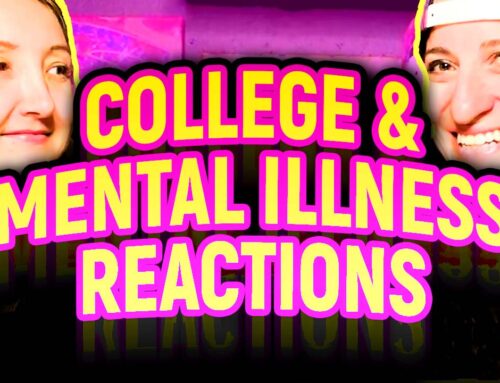7 Essential Components of Good Mental Well-being
Unsurprisingly, mental health had been neglected and not discussed in families for a long time. People frequently mistook mental health issues as taboo and something incurable. In truth, deteriorating mental health is an alarming issue that affects people of all ages. Good mental health is undoubtedly a prerequisite for good overall health as the mind and body are closely intertwined. Most of us can define and talk about various mental illnesses but don’t know much about mental health. Besides, good mental well-being doesn’t mean the absence of a mental issue but rather the state of mental wellness. But what exactly is mental health?
Mental health impacts how we feel, think and behave in our routine lives. It also influences our ability to deal with stress, form relationships, conquer problems, and recover from challenging situations and adversities of life. People with robust mental health unearth new skills, work productively, and contribute meaningfully to their communities. They are open and willing to learn new things and have strong self-confidence and self-awareness. Nonetheless, various elements contribute to our mental wellness. So let’s discuss them below:
1. Sense of self
Sense of self means having confidence in one’s self. Having a good self-image allows you to confidently utilize your skills and abilities to attain your objectives. This trait enables you to remain conscious of your flaws and know how to mitigate their negative impact on your life. A mentally healthy person is confident in their skin. They have a good sense of security, are emotionally intelligent, and form relationships quickly.
Several external factors can harm one’s sense of self. Addiction, for example, has a catastrophic impact on people’s self-confidence and self-esteem. Since drug abuse can lead to personality disorders, it’s not surprising that it diminishes one’s sense of self. Nevertheless, researchers have come across new frontiers in addiction therapy to help addicts. By combining ketamine with psychiatry and psychotherapy, doctors can help addiction patients recover speedily.
2. Cognitive health
Cognitive health comprises understanding, attention, memory, language, and high-order functions. It is a crucial aspect of brain health, influencing decision-making, planning, judgment, and goal-setting. You can determine one’s cognitive health by taking into account specific characteristics. Their intelligence, employment, personality attributes, resilience, and stress tolerance are some of these characteristics.
Individuals with good mental health are more involved in self-care activities like meditation, administering medication, and lifestyle choices. Cognitive health is significant because it helps us accomplish complex and basic routine life activities. Therefore, it is crucial to maintain cognitive health through various brain games, challenges, and exercises.
3. Physical health
As discussed earlier, the mind and body are interlinked. When the brain works efficiently, the body also functions well. Likewise, a body in a poor physical state might not have sound mental health. Illnesses and injuries can lead to emotional and mental stress. In this regard, physical activities play an important role in keeping the mind and body fit. Exercising for 10 minutes, for example, can improve your mood, brain clarity, and body energy.
Mindfulness is another helpful practice that can help with anxiety and stress as it releases endorphins to relax the body. If we are overloaded, anxious, or overthinking in any manner, our bodies will notify us. The body will send us signals to alert us to what is going on and urge us to pay more attention.
4. Emotional Health
Our emotions encourage us to act in ways that are consistent with our aims and values. Emotionally healthy people have control over their feelings, ideas, and actions. They’re capable of dealing with life’s difficulties. They can keep challenges in perspective and recover from failures. Our emotions provide us with quite a lot of information. However, they, like our thoughts, can be skewed and misleading. We may perceive danger while we’re perfectly safe and vice versa.
Individuals with good emotional health might sometimes suffer from mental health conditions, and chemical imbalances in the brain can potentially be the cause. People with emotional difficulties or mental illnesses can benefit from counseling, support groups, and medications.
5. Kindness
Kindness is defined as sincerely wanting to help people and doing something kind for yourself and others. Assisting others can strengthen our support networks and motivate us to become more active. A person in good mental health can be genuinely concerned about the well-being of others. They have long-lasting and fulfilling friendships.
Helping others has been shown to cause favorable changes in the brain associated with pleasure and fulfillment. Many people remain oblivious to the impact that a different point of view can have on their perception of life. So, little acts of kindness can promote optimism, happiness, and gratification.
6. Spirituality
Spirituality is mistaken for religious beliefs. However, this is not the case. It refers to your purpose in life and sense of structure. But, both religion and spirituality have a positive impact on mental health. Spirituality has a major impact on an individual’s decision-making power. It motivates people to create stronger bonds with themselves and their community.
Moreover, spirituality enables a person to cope with stress by providing a sense of purpose, forgiveness, and peace. As a result, incorporating spirituality into the treatment of mental health issues can be immensely beneficial. Taking care of one’s spiritual health is as important as taking care of mental health. So, do what makes you feel contented and at ease.
7. Nutrition
A diet rich in nutrition helps us think more clearly and feel more attentive. It can also help with enhanced focus and attention span. A nutritious diet is required to form new cells, proteins, and tissues in the brain and nervous system. When the brain gets its required amount of nutrition, it enables the body to function actively. The consumption of nutritious foods promotes the growth of beneficial bacteria, which positively affects the neurotransmitter. When your brain receives these good messages, your emotions reflect them. Furthermore, evidence shows that adequate nutrition can help prevent and recover from various mental health conditions.
Final Words
Indeed, focusing on the seven components listed above can improve your well-being in the long run. Begin today by forming new, healthy habits that will enable you to grow and thrive. Both your mind and body will be at peace if you continue to work on yourself. So, enhance your sense of self, maintain physical and emotional health, and hone spirituality. Alongside this, remain kind and ensure your body is properly nourished to avoid chemical imbalances. Eventually, you’ll lead a healthy and active life stemming from robust mental health.





